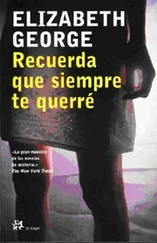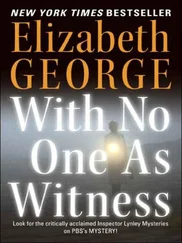Elizabeth George - I, Richard
Здесь есть возможность читать онлайн «Elizabeth George - I, Richard» весь текст электронной книги совершенно бесплатно (целиком полную версию без сокращений). В некоторых случаях можно слушать аудио, скачать через торрент в формате fb2 и присутствует краткое содержание. Жанр: Детектив, на английском языке. Описание произведения, (предисловие) а так же отзывы посетителей доступны на портале библиотеки ЛибКат.
- Название:I, Richard
- Автор:
- Жанр:
- Год:неизвестен
- ISBN:нет данных
- Рейтинг книги:3 / 5. Голосов: 1
-
Избранное:Добавить в избранное
- Отзывы:
-
Ваша оценка:
- 60
- 1
- 2
- 3
- 4
- 5
I, Richard: краткое содержание, описание и аннотация
Предлагаем к чтению аннотацию, описание, краткое содержание или предисловие (зависит от того, что написал сам автор книги «I, Richard»). Если вы не нашли необходимую информацию о книге — напишите в комментариях, мы постараемся отыскать её.
This volume contains three revised versions of Elizabeth George's short stories which were originally published under the title 'The Evidence Exposed'. Here there are also two new stories and an introduction by the author to all five stories of human weakness.
I, Richard — читать онлайн бесплатно полную книгу (весь текст) целиком
Ниже представлен текст книги, разбитый по страницам. Система сохранения места последней прочитанной страницы, позволяет с удобством читать онлайн бесплатно книгу «I, Richard», без необходимости каждый раз заново искать на чём Вы остановились. Поставьте закладку, и сможете в любой момент перейти на страницу, на которой закончили чтение.
Интервал:
Закладка:
The King's forces-12,000 strong-were encamped on the summit of Ambion Hill where Malcolm Cousins and his band of shivering neo-Ricardians were standing. The King knew that the morrow would decide his fate: whether he would continue to reign as Richard III or whether his crown would be taken by conquest and worn by an upstart who'd lived most of his life on the continent, safely tucked away and coddled by those whose ambitions had long been to destroy the York dynasty. The King would have been well aware that his fate rested in the hands of the Stanley brothers: Sir William and Thomas, Lord Stanley. They had arrived at Bosworth with a large army and were encamped to the north, not far from the King, but also-and ominously-not far from the King's pernicious adversary, Henry Tudor, Earl of Richmond, who also happened to be Lord Stanley's stepson. To secure the father's loyalty, King Richard had taken one of Lord Stanley's blood sons as a hostage, the young man's life being the forfeit if his father betrayed England's anointed King by joining Tudor's forces in the upcoming battle. The Stanleys, however, were a wily lot and had shown themselves dedicated to nothing but their own self-interest, so-holding George Stanley hostage or not-the King must have known how great was the risk of entrusting the security of his throne to the whimsies of men whose devotion to self was their most notable quality.
The night before the battle, Richard would have seen the Stanleys camped to the north, in the direction of Market Bosworth. He would have sent a messenger to remind them that, as George Stanley was still being held hostage and as he was being held hostage right there in the King's encampment, the wise course would be to throw their lot in with the King on the morrow.
He would have been restless, Richard. He would have been torn. Having lost first his son and heir and then his wife during his brief reign, having been faced with the treachery of once-close friends, can there be any doubt that he would have wondered-if only fleetingly-how much longer he was meant to go on? And, schooled in the religion of his time, can there be any doubt that he knew how great a sin was despair? And, having established this fact, can there be any question about what the King would have chosen to do on the night before the battle?
Malcolm glanced over his group. Yes, there was a satisfactorily misty eye or two among them. They saw the inherent Romance in a widowed King who'd lost not only his wife but his heir and was hours away from losing his life as well.
Malcolm directed a victorious glance at Sludgecur. Her expression said, Don't press your luck.
It wasn't luck at all, Malcolm wanted to tell her. It was the Great Romance of Hearing the Truth. The wind had picked up velocity and lost another three or four degrees of temperature, but his little band of Antique Aussies were caught in the thrall of that August night in 1485.
The night before the battle, Malcolm told them, knowing that if he lost, he would die, Richard would have sought to be shriven. History tells us that there were no priests or chaplains available among Richard's forces, so what better place to find a confessor than in St. James Church. The church would have been quiet as Richard entered. A votive candle or rushlight would have burned in the nave, but nothing more. The only sound inside the building would have come from Richard himself as he moved from the doorway to kneel before the altar: the rustle of his fustian doublet (satin-lined, Malcolm informed his scholars, knowing the importance of detail to the Romantic Minded), the creak of leather from his heavy-soled battle shoes and from his scabbard, the clank of his sword and dagger as he-
“Oh my goodness,” a Romantic neo-Ricardian chirruped. “What sort of man would take swords and daggers into a church?”
Malcolm smiled winsomely He thought, A man who had a bloody good use for them, just the very things needed for a bloke who wanted to prise loose a stone. But what he said was, “Unusual, of course. One doesn't think of someone carrying weapons into a church, does one? But this was the night before the battle. Richard's enemies were everywhere. He wouldn't have walked into the darkness unprotected.”
Whether the King wore his crown that night into the church, no one can say, Malcolm continued. But if there was a priest in the church to hear his confession, that same priest left Richard to his prayers soon after giving him absolution. And there in the darkness, lit only by the small rushlight in the nave, Richard made peace with his Lord God and prepared to meet the fate that the next day's battle promised him.
Malcolm eyed his audience, gauging their reactions and their attentiveness. They were entirely with him. They were, he hoped, thinking about how much they should tip him for giving a bravura performance in the deadly wind.
His prayers finished, Malcolm informed them, the King unsheathed his sword and dagger, set them on the rough wooden bench, and sat next to them. And there in the church, King Richard laid his plans to ruin Henry Tudor should the upstart be the victor in the morrow's battle. Because Richard knew that he held-and had always held-the whip hand over Henry Tudor.
He held it in life as a proven and victorious battle commander. He would hold it in death as the single force who could destroy the usurper.
“Goodness me,” someone murmured appreciatively. Yes, Malcolm's listeners were fully atuned to the Romance of the Moment. Thank God.
Richard, he told them, wasn't oblivious of the scheming that had been going on between Henry Tudor and Elizabeth Woodville- widow of his brother Edward IV and mother of the two young Princes whom he had earlier placed in the Tower of London.
“The Princes in the Tower,” another voice remarked. “That's the two little boys who-”
“The very ones,” Malcolm said solemnly. “Richard's own nephews.”
The King would have known that, holding true to her propensity for buttering her bread not only on both sides but along the crust as well, Elizabeth Woodville had promised the hand of her eldest daughter to Tudor should he obtain the crown of England. But should Tudor obtain the crown of England on the morrow, Richard also knew that every man, woman, and child with a drop of York blood stood in grave danger of being eliminated- permanently-as a claimant to the throne. And this included Elizabeth Woodville's children.
He himself ruled by right of succession and by law. Descended directly-and more important legitimately-from Edward III he had come to the throne after the death of his brother Edward IV, upon the revelation of the licentious Edward's secret pledge of marriage to another woman long before his marriage to Elizabeth Woodville. This pledged contract of marriage had been made before a bishop of the church. As such, it was as good as a marriage performed with pomp and circumstance before a thousand onlookers, and it effectively made Edward's later marriage to Elizabeth Woodville bigamous at the same time as it bastardised all of their children.
Henry Tudor would have known that the children had been declared illegitimate by an Act of Parliament. He would also have known that, should he be victorious in his confrontation with Richard III, his tenuous claim to the throne of England would not be shored up by marriage to the bastard daughter of a dead King. So he would have to do something about her illegitimacy.
King Richard would have concluded this once he heard the news that Tudor had pledged to marry the girl. He would also have known that to legitimatise Elizabeth of York was also to legitima-tise all her sisters… and her brothers. One could not declare the eldest child of a dead King legitimate while simultaneously claiming her siblings were not.
Malcolm paused meaningfully in his narrative. He waited to see if the eager Romantics gathered round him would twig the implication. They smiled and nodded and looked at him fondly, but no one said anything. So Malcolm did their twigging for them.
Читать дальшеИнтервал:
Закладка:
Похожие книги на «I, Richard»
Представляем Вашему вниманию похожие книги на «I, Richard» списком для выбора. Мы отобрали схожую по названию и смыслу литературу в надежде предоставить читателям больше вариантов отыскать новые, интересные, ещё непрочитанные произведения.
Обсуждение, отзывы о книге «I, Richard» и просто собственные мнения читателей. Оставьте ваши комментарии, напишите, что Вы думаете о произведении, его смысле или главных героях. Укажите что конкретно понравилось, а что нет, и почему Вы так считаете.












